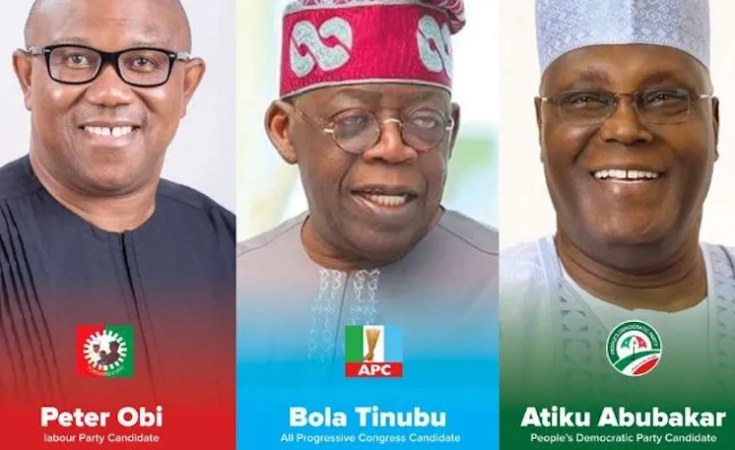Ahead of Nigeria's most technologically advanced election, the security of its election infrastructure is under intense scrutiny.
Election technology has been deployed in a growing list of African countries, from the Democratic Republic of Congo (DRC) to Ghana and Kenya, raising hopes for improved transparency, integrity and trust in electoral democracy.
But technology alone is not a guarantee of credibility and security. It's also a new frontier for election fraud amid concerns over vulnerabilities to hacking and manipulation. Complaints of interference by Ghana's Electoral Commission (EC) and security issues with the DRC's electronic voting system highlight how technology can lead to contested results and damage public trust.
Technology alone is not a guarantee of credibility and security. It's also a new frontier for election fraud amid concerns over vulnerabilities to hacking and manipulation.
On the eve of Nigeria's most technologically advanced election, the security of its election infrastructure and data systems is now under intense scrutiny. The general elections on 25 February and 11 March will be the first to see the country's new election system deployed nationwide in 176,606 polling units - increased by almost 50% from the last election in 2019.
High expectations have seen millions more voters added to the election register, raising the number to 93.5 million, but the credibility of this technology and its administrators, the Independent National Electoral Commission (INEC), hang in the balance. While nearly three-fourths (71%) of Nigerians continue to support elections as the best way to choose their leaders, more than three-fourths (78%) say they have little or no trust in the election management body. Popular trust in the INEC has stagnated in the low 30s and 20s since 2003 and is now down to 23%.
Nigeria's election technology
The Electoral Act of 2022 gave INEC broad powers to deploy election technology. The resulting Bimodal Voter Accreditation system (BVAS) and INEC's Results Viewing Portal (IReV) have been heralded as guarantors of enhanced transparency and accessibility of election results and an end to electoral fraud. The BVAS is an electronic device designed to read Permanent Voter Cards (PVCs) and authenticate voters, then upload images of the results to the IReV, an online platform publishing results for the public.
Nigeria is yet to follow Kenya in making electoral systems part of its critical national infrastructure, despite INEC's acknowledgement of public trust being placed in electoral technology and growing apprehension over the possibility of the malfunctioning or manipulation of the BVAS and IReV systems.
Recent reports have highlighted Nigeria's weak cybersecurity and obsolete computing resources, and INEC has alleged attempts to clone BVAS hardware and hack its computer system have been made from both within the country and across the world. INEC and fact-checking experts have also expressed concerns over disinformation, misinformation and hate speech as a threat to the legitimacy of the elections and electoral body.
The importance of transparency
Given these challenges, it is critical for INEC to continue to map cybersecurity threats and deepen coordination across relevant stakeholders. Externally produced resources, such as the Commonwealth guide to election cybersecurity, can help identify further weaknesses and offer best practice guides to an effective response.
For transparency during the collation of results, INEC must be prepared to consistently provide evidence of the verification of the results transmission system. They must also intensify the availability of credible information for party agents, citizens and other stakeholders, to familiarize them with the transmission process for results. This is especially important for places with insufficient or compromised internet coverage.
Understanding the capabilities and vulnerabilities of the election technology being deployed by INEC is particularly necessary for the judiciary in light of new electoral laws.
This will increase public confidence ahead of the elections and ensure broad understanding of the technology being deployed. It will also enlist widespread support for electoral vigilance at the polls including the ways electronic data can become a matter for evidence in contesting election results.
Understanding the capabilities and vulnerabilities of the election technology being deployed by INEC is particularly necessary for the judiciary, in light of new electoral laws and the central role the courts will have in the inevitable legal challenges to results. A tribunal recently reversed an election in Nigeria's Osun state on the basis of a petition that alleged over-voting following the use of the BVAS and IReV.
Underscoring the election technology challenge of tribunals, INEC has since appealed the decision. Another concern is the ability of the courts to handle open-source evidence gathered at election venues and engage digital forensics in a way that complies with internationally adopted standards, ensures the safety of sensitive personal information captured during verification of voting, and leads to impartial decisions.
Dr Nnenna Ifeanyi-Ajufo, Vice-chair, African Union Cyber Security Experts Group
Dr Leena Koni Hoffmann, Associate Fellow, Africa Programme


